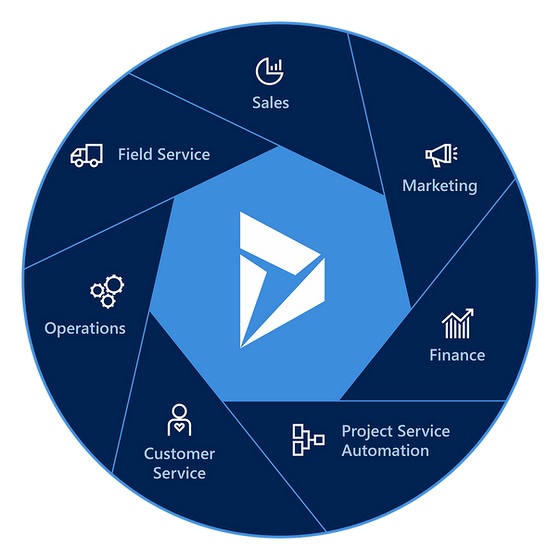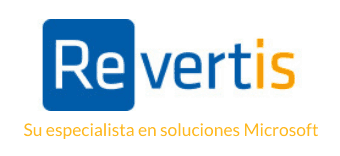CRM in D365 products
How would we define the CRM concept?
Today, the concept of CRM is a technicalization of a basic and essential concept for the operation of any company and generally offered as an IT support.
Whether our focus is on Microsoft D365 Sales, Microsoft D365 Finance or any other management tool, it will be essential to start at the beginning, focusing on the numerous existing definitions for the CRM (Customer Relationship Management) concept. However, they all have the following in common:
Proper management of customer relationships
The key is to find out what this concept of “customer relationships” represents for each company and for each specific case, and also to understand to what level of depth we want to take our management of these relationships. You will find that in the products of the D365 family we have the common base to cover with total guarantee these generic purposes. Because they are designed to achieve your objectives.
The implementation of a CRM
In REVERTIS we know that the decision of implantation and suitable utilization of a CRM tool is something quite deep and of great importance, since it is the base of existence of every company. Any company exists only and exclusively because it has customers and any customer will relapse to a greater or lesser extent with our company depending on a set of variables, that is to say, depending on the relationship we establish with them. The set of variables that encompass this relationship ranges from purely objective aspects (product or service quality, price, availability, etc.) to more qualitative aspects (customer service, proactivity, experience, etc.).
We can therefore see that CRM is a concept that can be very broad, depending on the environment we want to focus on or where we want to apply it. Several products in the Dynamics 365 family have CRM functionalities. We don’t have to limit ourselves to D365 SALES alone. D365 Finance also offers in its base concept a complete CRM. The choice in your case will depend on your specific objectives and your situation and roadmap with respect to the layout and use of technologies in your company.

In our opinion, it is a matter of focusing on properly managing the differential facts that, as a company, place us at an advantage over our competitors with respect to our customers, who are the reason for our being and existence as a company, with the aim of maximizing our turnover.
Invoicing is the consequence of what we do, of the services and products we deliver. And the effective collection of these, of course, is the confirmation of our actions. But the differential actions that we perform for our customers are usually actions prior to invoicing and can be of a very varied nature, depending on each company, as we indicated at the beginning.
At the heart of the matter, we are talking about something very basic, “Trade”.

As long as commerce has existed, CRM has existed as a concept, each one applying it according to his environment and needs.
The CRM evolution process
Throughout the history of commerce, companies have been created, evolved and adapted. Exactly like CRM as a concept in current times. Thus, we can intuit that we are dealing with something very critical and very variable, with a scope of action that can range from one person (the neighborhood grocer or the waiter at breakfast) to a very complex organization.
All apply to a greater or lesser extent the concept of CRM. This concept is understood as relationships with your customers, with a greater or lesser degree of customization, more or less structured according to their size, more or less organized, etc. But in all cases, it is a concept inherent to the purpose of any company.
Nowadays, the concept of CRM has been technified and is offered as an IT support, but the success in the use of CRM in our particular case will lie in understanding the critical tasks and actions that we perform in our specific case and with the different profiles of our specific customers. The goal is to be able to maximize the execution of these actions.
There are companies that focus their CRM on marketing actions, others on the elaboration of budgets, or on the delivery of samples, or on the establishment of audits/analysis … Others focus on the after-sales service or simply on the follow-up of the daily interaction actions with their customers, etc.
For this reason Microsoft offers in “Stand Alone” format the functionalities:
- D365 Marketing
- D365 Sales
- D365 Service (Customer Service, Field Service, Remote Assist)

In this way, REVERTIS as experts in Dynamics, we will be able to help you to select the product or products that better adapt to your needs. Considering both your current and future purposes.
Thus, depending on the case, the CRM tool used will be one or another, it will have some or other functionalities. It will also depend on the scope of action, local, international, distributed, etc.

Even in the case of not very complex companies, we will find an important variety of actions, depending on whether we are talking to the technical, commercial, administration or legal department, for example. Even within the same department, we will surely have very different actions. Depending on whether it is a technical incident involving a water failure, gardening, installation, etc. Or for example in finance, the follow-up of a collection, a wrongly issued invoice, a bank error that has generated an unpaid bill. Or in the legal department if we are helping in the drafting of a new lease or in a litigation action.
But despite their variety, there are clear points common to all of them. For example, in one case, we will have photos reflecting the state of the breakdown, in another we will have supporting documents or bank receipts, in others, legal documents. In short, Attachments, a concept common to all actions and perfectly treated by Microsoft tools. And of course, actions as such; a common concept to reflect the evolution of each of the interactions carried out in any of the cases indicated above as an example and to be treated.

We must be able to offer a tool adapted to our needs, which is generic enough to cover all the actions detailed above in a similar and easy to use way, enhancing the common elements existing in all of them, that we can use and access from anywhere, with which we can easily check the status of each of these tasks as well as the actions we have performed, we can view and/or add photos or attached documents and we can analyze the volume of incidents or cases available either by customer, location, department, status.
We must be able to rely on the use of this tool to allow us to obtain this information and not have to remember in our limited memory the details of the less relevant management relationships. Of course, for the most relevant relationships this would not be necessary, since by their very relevance we are already aware of them and have enough dedication to solve their management. But even for these, after some time, it is quite possible that we have forgotten the details once they have been solved. It is therefore a question of having the tool that allows us to order these cases and actions and to make it easier for us to remember what we did at the time in such and such a case. You will find all this in the Microsoft products of the D365 family.

Thus, in order to meet these needs, we used the main advantage of D365 Finance, namely the fact that it already has a generic CRM module. Based on this module, we have articulated the adapted operation of a mobile and desktop application that will facilitate its management.
In REVERTIS we do not intend to interfere in the work that employees currently perform with their customers. We understand that this is the fundamental part and the main reason of being of a company. It is true that many CRM implementations effectively condition the users in their working methods, to the limit of guiding them in absolutely all their actions (Guided procedure for the claim of a non-payment, for example, or that steps must be followed to process a breakdown, etc.). Our proposal is much simpler and more effective. We understand that these actions are already being carried out in the company at the moment.
D365 Finance ERP
Our solution in D365 Finance simply provides a management tool to be used in the most convenient way according to the purposes of each company. We facilitate the introduction of the information that is considered most relevant in each of the cases and daily management. This allows us to subsequently obtain an analysis and a summary that can be of value in subsequent negotiation actions to be carried out with the client itself or with other clients.
Using these tasks and actions as a working model.
Within D365 Finance ERP you will find a wide variety of tools available for your CRM. In case more tools are required, they can be complemented with more specific product licenses. For example, D365 Marketing allows you to manage online campaigns. The advantage of the D365 Family products is that they can be purchased independently and are scalable.
When considering migrating to D365 Finance, the end customer should be aware that a large part of their CRM is manageable from their ERP. REVERTIS can help you to offer certain departments a more specific product of the D365 family, according to their needs. The solution is fully integrated and learning times are very short. This is possible thanks to similar procedures and work interfaces across the entire D365 platform.
If you found this article interesting, please do not hesitate to contact our consultants. We will be happy to evaluate your needs and assist you in any way that we can.




